A PROFOUND SENSE OF PLACE. A PROFOUND SENSE OF PURPOSE.


A PROFOUND SENSE OF PLACE. A PROFOUND SENSE OF PURPOSE.

WHERE IN THE WORLD is Dartmouth? Nestled in the woods of New Hampshire—just over two hours north of Boston, Massachusetts—you’ll find our vibrant, buzzing, global community in Hanover. Students from all 50 states and more than 90 countries converge here in our charming New England college town to learn from some of the world’s leading scholars against the idyllic backdrop of Hanover’s four seasons.
Founded in 1769, Dartmouth College sits on traditional, unceded Abenaki homelands.

A PROFOUND SENSE OF PLACE
• A 15-minute walk from the Green, Ledyard Canoe Club rents kayaks, canoes, and stand-up paddleboards for a day of fun on the Connecticut River.
• The Appalachian Trail—the mountainous path that extends almost 2,200 miles from Georgia to Maine— passes right through downtown Hanover.
• The Dartmouth Skiway welcomes novices and experts alike to ski and snowboard its dozens of trails.
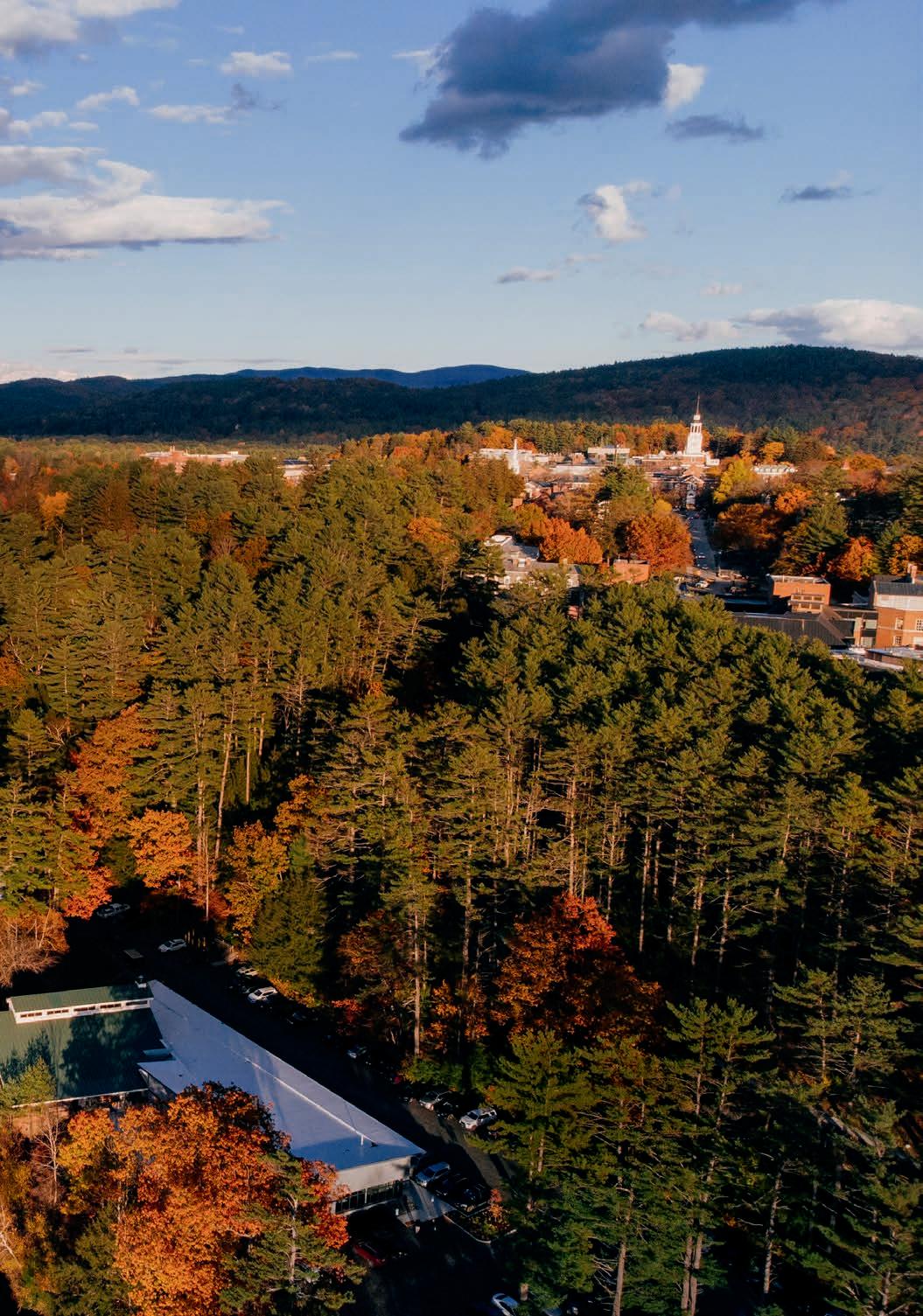
DARTMOUTH IS A FUSION of a renowned liberal arts college and a robust research university where students, faculty, and staff partner to take on the world’s greatest challenges. The College has more than 40 undergraduate academic departments and programs as well as four graduate and professional schools: the Tuck School of Business, Dartmouth Engineering, the Geisel School of Medicine, and the Guarini School of Graduate and Advanced Studies. All undergraduate applicants apply to the College of Arts and Sciences and have up to two years to declare a major. At Dartmouth, seemingly different disciplines become natural partners: our undergraduates are artists and engineers; researchers and athletes; poets and entrepreneurs.
Pictured here in its new space at campus’s West End, the Arthur L. Irving Institute for Energy and Society prepares Dartmouth students to shape a more equitable and sustainable future through interdisciplinary research and learning opportunities.

• Dartmouth Engineering offers undergraduates the chance to earn both a Bachelor of Arts (AB) and a Bachelor of Engineering (BE).
• Undergraduate students can take up to three classes at the Tuck School of Business and apply to participate in the Tuck Business Bridge Program, an immersive educational experience that prepares top liberal arts students for careers in business.
• The Dartmouth-Hitchcock Medical Center—a teaching hospital affiliated with the Geisel School of Medicine— is a major tertiary-care site for patients throughout New England. Through the Nathan Smith Society Shadowing Program, undergraduates shadow professionals at DHMC to get a firsthand look at a career in medicine.

DARTMOUTH’S LIBERAL ARTS CURRICULUM teaches students how to think, not what to think. Students declare a major by sophomore year, but the classes they take span disciplines far outside their chosen concentration. And our iconic location is infused in the classroom at every turn—whether studying local food and energy systems at the Dartmouth Organic Farm, examining Shakespeare’s first folio at Rauner Special Collections Library, or shaking hands with presidential candidates visiting Hanover on the campaign trail. How will you explore?
African and African American Studies
Ancient History
Anthropology
• Three miles north of campus you’ll find the Dartmouth Organic Farm, a 220-acre patchwork of land home greenhouses, gardens, and beehives.
Art History
Asian Societies, Cultures, and Languages
Astronomy
• Bema, a grassy amphitheater on the eastern edge hosts everything from outdoor study sessions to campaign visits.
Biological Chemistry M
Biological Sciences
Biomedical Engineering Sciences M
• The Hood Museum of Art’s encyclopedic collection the largest of its kind in the country, comprising 65,000 works. Take a look for yourself Wednesday Saturday; admission is free.
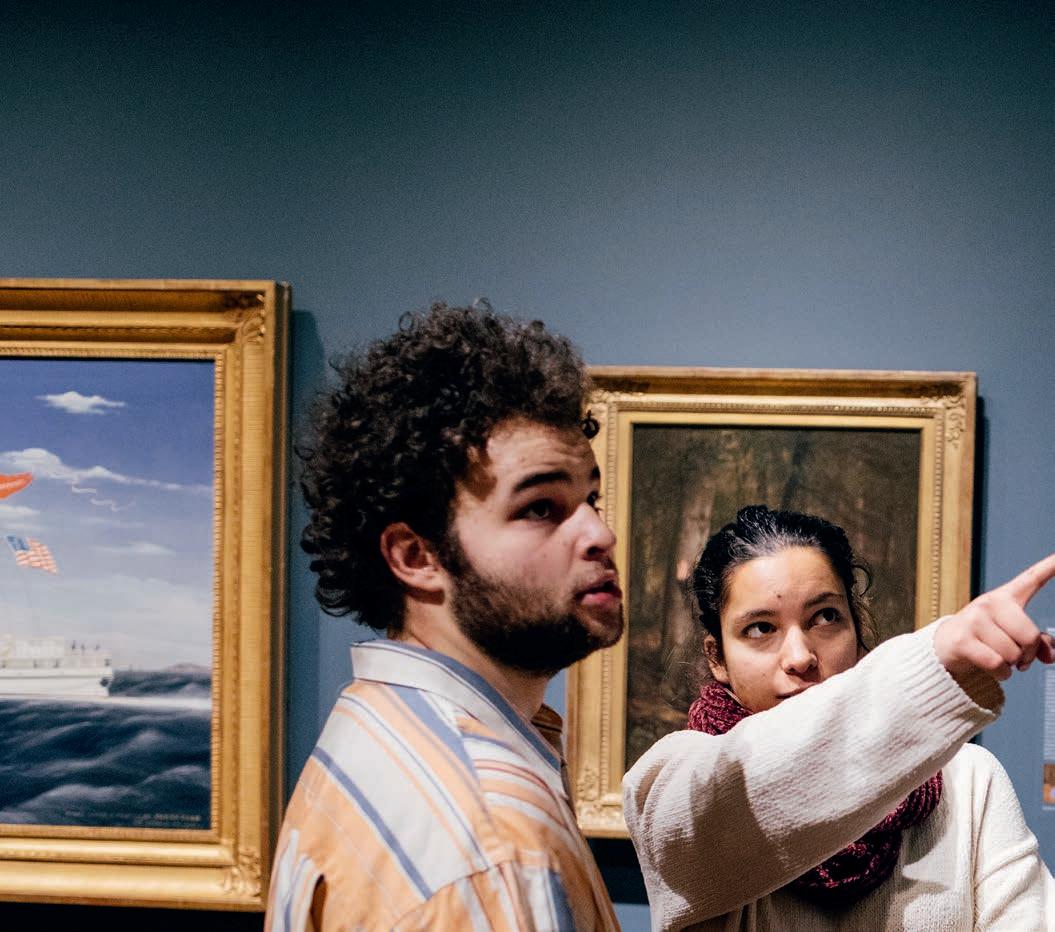
Biophysical Chemistry M Chemistry
Classical Archaeology
Classical Languages and Literatures
Classical Studies
Climate Change Science m
Cognitive Science M
Comparative Literature M
Computational Linguistics M
Computer Science
Dartmouth home to edge of campus, presidential collection is one of more than Wednesday through
Digital Arts m
Earth Sciences
Economics
Education m
Engineering Physics
Engineering Sciences
English
Environmental Studies
Film and Media Studies
French/French Studies
Geography
German Studies
Global Health m
Government
History
Human-Centered Design m
International Studies m
Italian/Italian Studies
Jewish Studies
Latin American, Latino, and Caribbean Studies
Linguistics
Markets, Management, and the Economy m
Materials Science m
Mathematics
Mathematical Data Science M
Medieval and Renaissance Studies *
Middle Eastern Studies
Music
Native American and Indigenous Studies
Neuroscience
Philosophy Physics
Portuguese (Lusophone Studies)
Psychology
Public Policy m
Quantitative Social Science
Religion
Romance Languages M
Romance Studies M
Russian/Russian Area Studies
Social Inequalities m
Sociology
Spanish (Hispanic Studies)
Statistics m
Studio Art Theater
Translation Studies m
Urban Studies m
Women’s, Gender, and Sexuality Studies
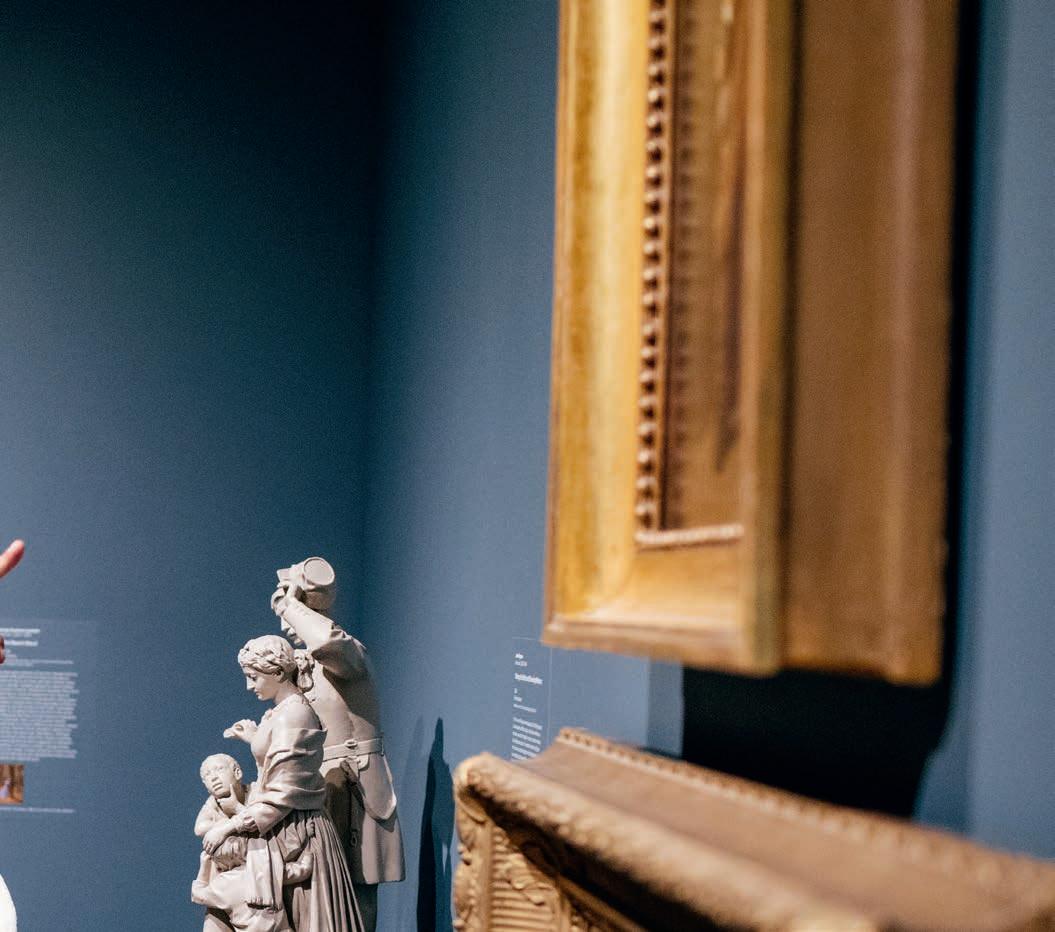
m = minor only M = major only
*= major modification only
DARTMOUTH FACULTY are award-winning poets, patent-holding engineers, biologists conducting groundbreaking vaccine research, and more—but first and foremost, they love to teach. Dartmouth students don’t just learn from leading researchers; they become equal investigators in their work, often publish scholarly findings together, and count them as lifelong mentors in and out of the classroom.
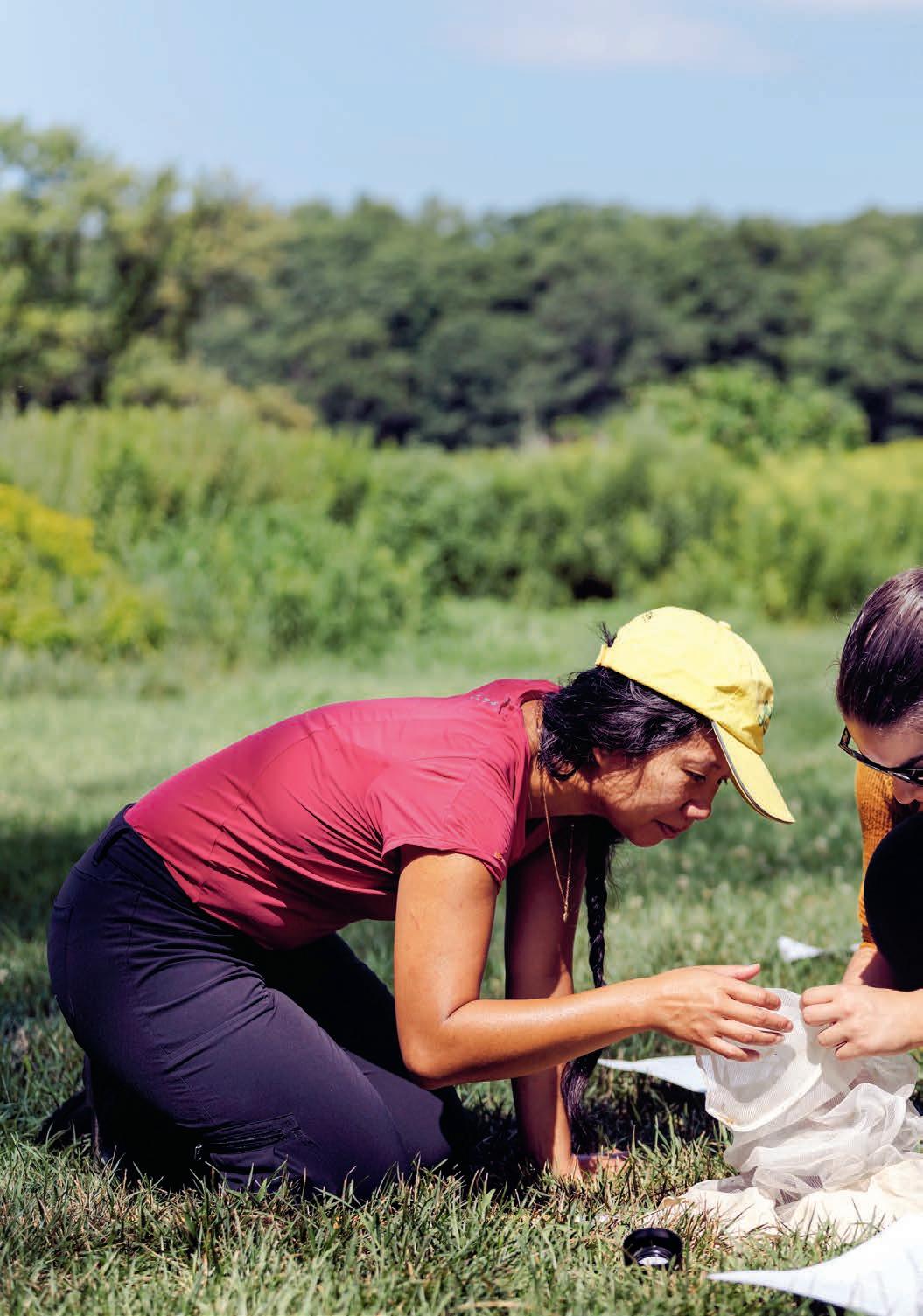
• At the Digital Applied Learning and Innovation (DALI) Lab, students and faculty design and build mobile applications, websites, digital installations, and more.
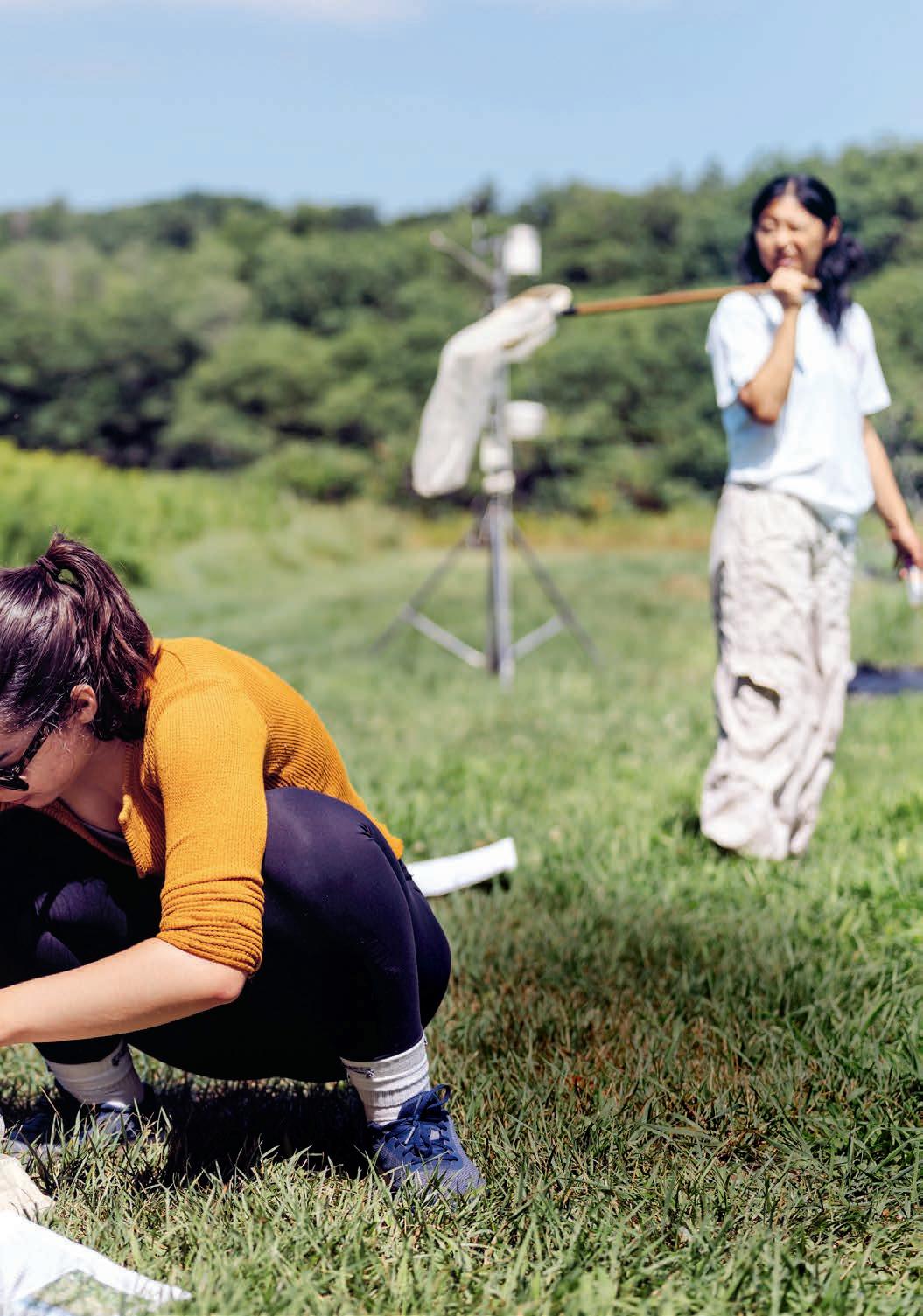
• Dartmouth’s Take a Faculty Member to Breakfast or Lunch program allows students and professors to enjoy a meal together at a Hanover restaurant free of charge.
• The Nelson A. Rockefeller Center for Public Policy and Social Sciences is a hub for public policy research and leadership development on campus.
THANKS TO DARTMOUTH’S distinctive year-round quarter system—the D-Plan—students customize their own academic calendars across four years. Dartmouth offers four, 10-week academic terms per year that align with the four seasons. Within some guidelines, students choose how—and where—they’ll spend each of those terms, whether taking classes in Hanover, studying away on an off-campus program, or embarking on a “leave term” to pursue an internship, research, creative pursuit, or time off. The result? An academic experience that’s tailor-made for you, by you.
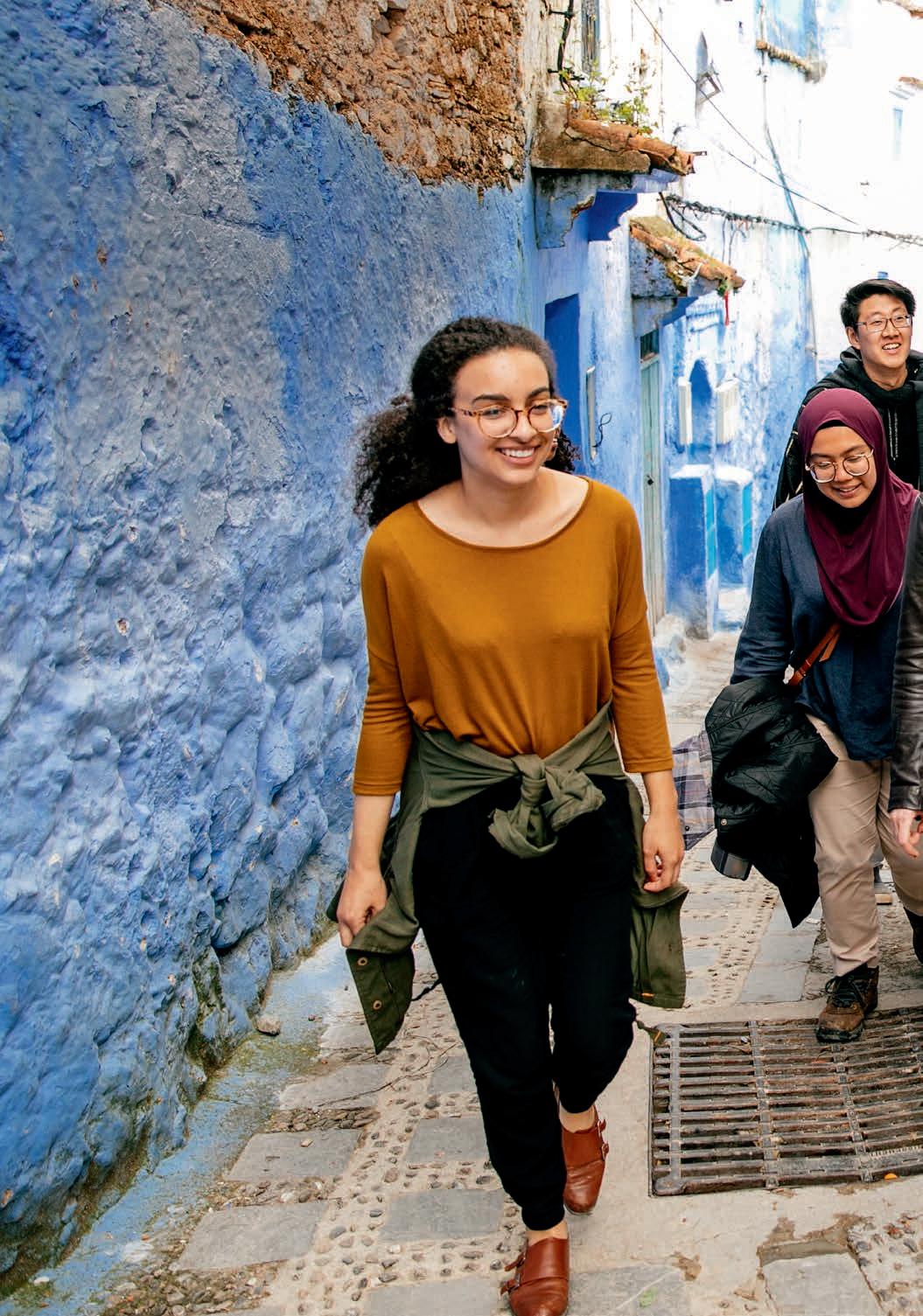
• The College offers over 75 off-campus programs, including its signature Foreign Study Programs (FSPs), Language Study Abroad (LSA) programs, and exchange programs across more than a dozen countries on five continents.
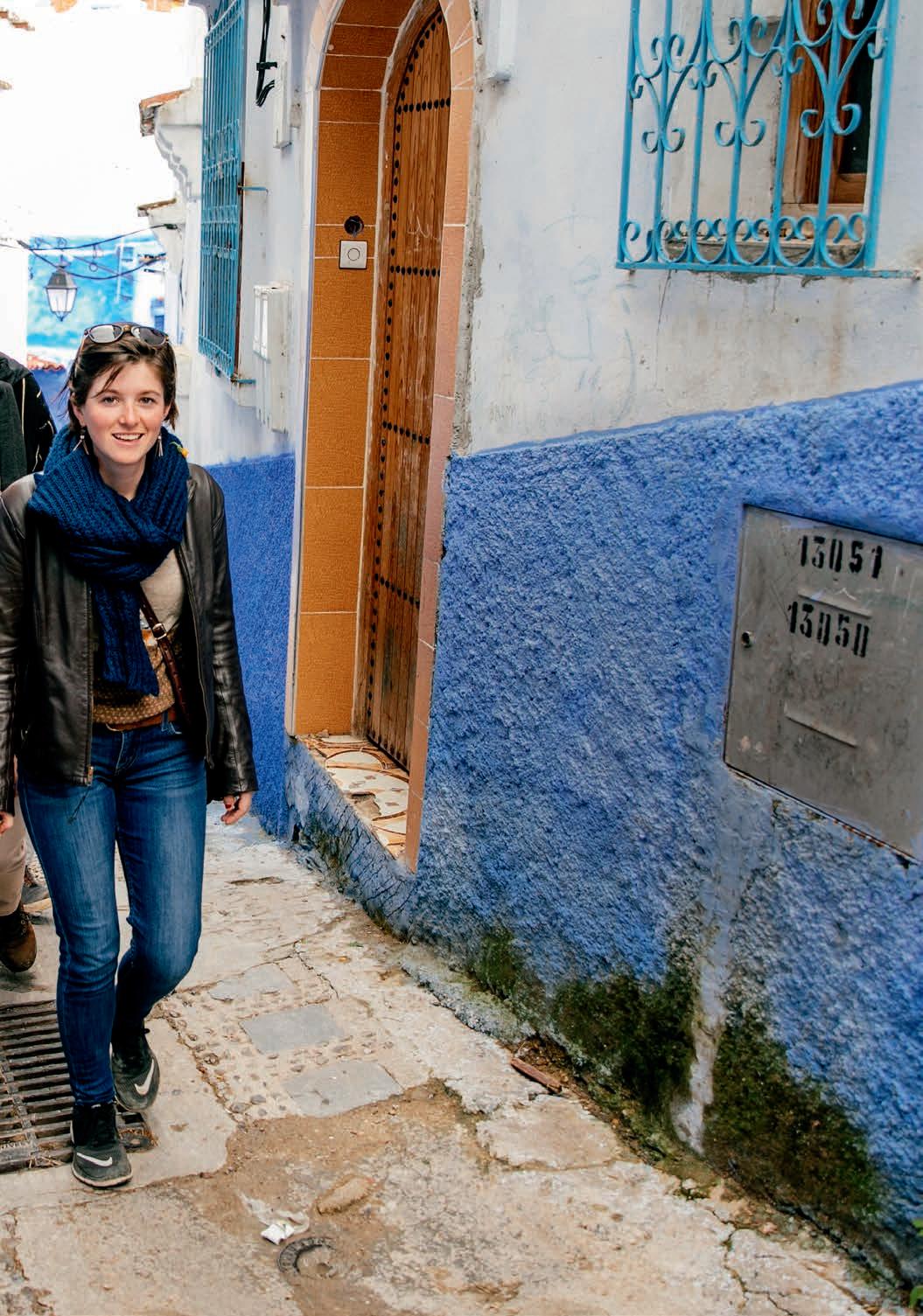
• Students receiving need-based financial aid pay the same net price for a term anywhere in the world as they would for a term in Hanover.
• Dartmouth’s Institute for Arctic Studies is one of the most robust of its kind in the world, engaging students and faculty in global policy dialogues that center inclusion, justice, equity, and Indigenous knowledge in finding solutions to Arctic challenges.

DARTMOUTH STUDENTS are bold, inventive, and curious. They embrace challenges with a signature adventuresome spirit. Find them jumping into an icy Occom Pond during the College’s annual Winter Carnival celebration; pitching their start-up to a board of investors through the Magnuson Center for Entrepreneurship; competing at the Olympics; learning a new language via the Rassias method, Dartmouth’s signature language-learning curriculum; or trying their hand at white-water rafting. What’s your idea of fun?
• A storied tradition hosted by the Dartmouth Outing Club, The Fifty sees teams of students embark on a 54-mile overnight trek along the Appalachian Trail, a mountainous path that extends from Georgia to Maine and passes through downtown Hanover.
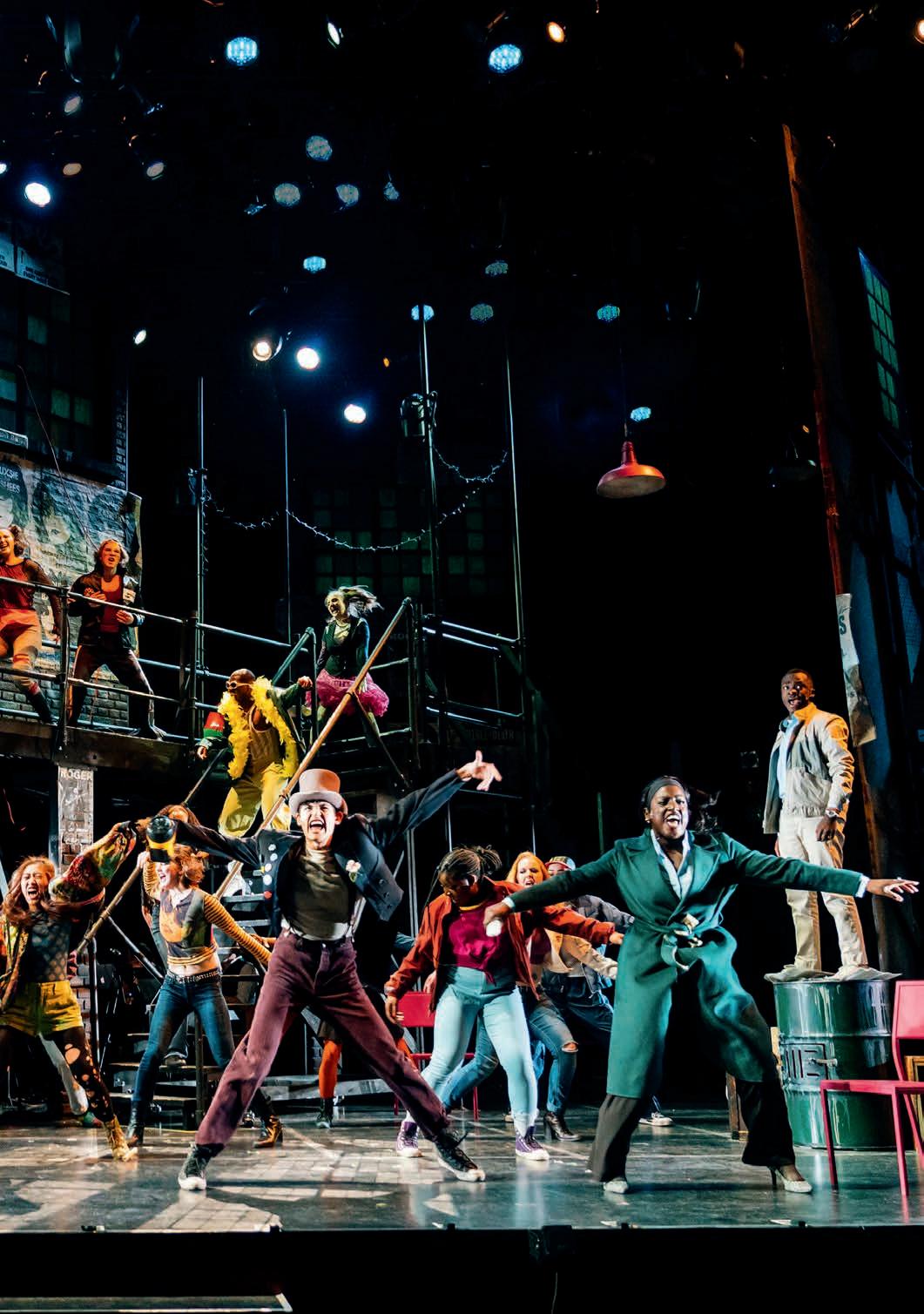
• The College has sent athletes to every Winter Olympics since the Winter Games began in Chamonix, France in 1924.
• Originally developed for Peace Corps training, Dartmouth’s Rassias Method is an innovative teaching model that speeds language learning and increases language retention. Dartmouth students can explore an array of 12 languages as a major, minor, or part of another program of study.
• Honoring Dartmouth’s vibrant Indigenous and panPasifika communities, the annual Powwow and Lū’au are student-led celebrations of Indigenous, Native Hawaiian, and Pacific Islander cultures through music, food, singing, and dancing.
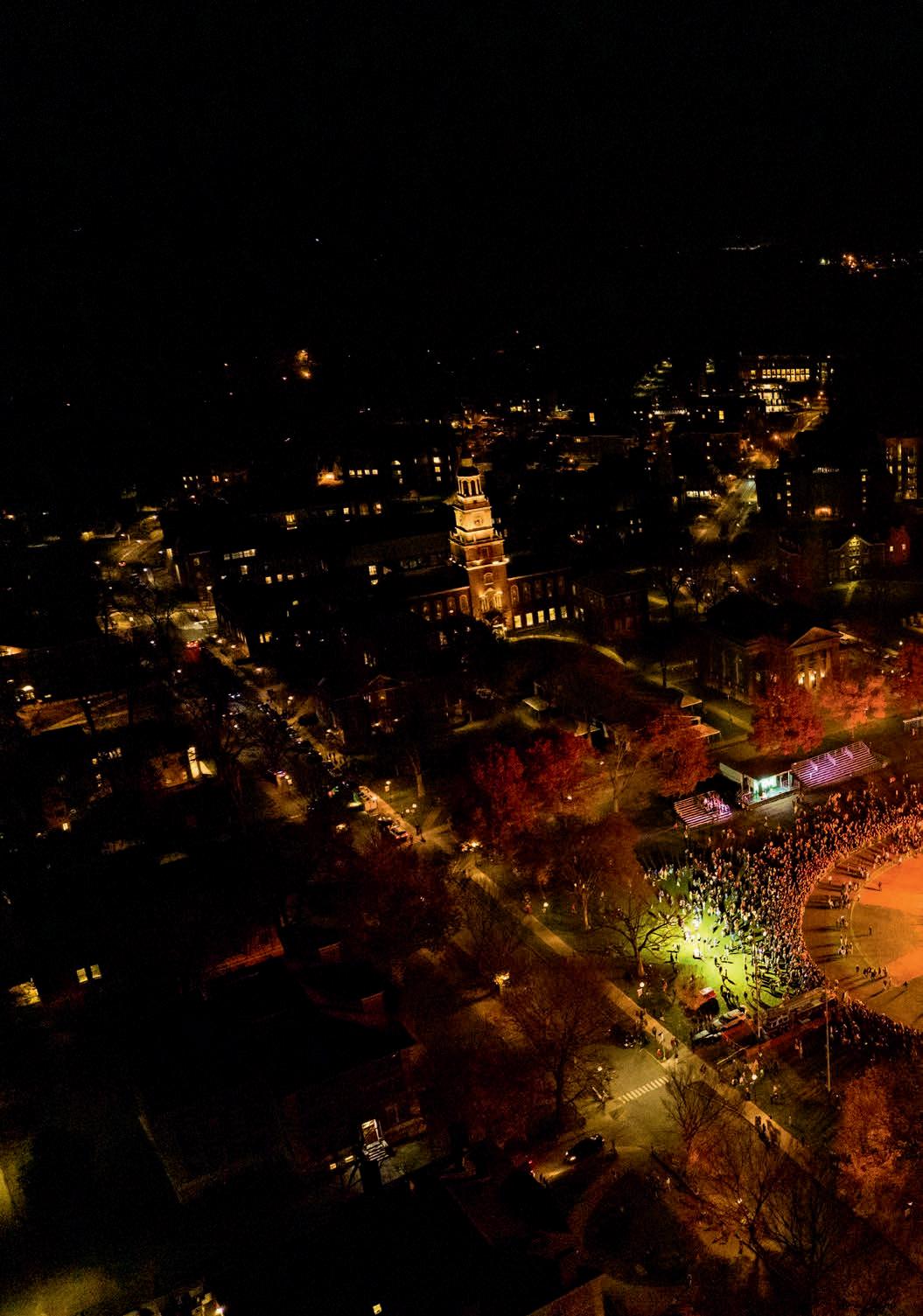
• Sanborn Library—a cozy, atmospheric space brimming with novels and poetry collections—has offered a daily afternoon tea service for decades.
• The College’s signature first-year trips program welcomes incoming students to the Dartmouth community through peer-led outdoor adventures across New England.
OVER THE COURSE of two and a half centuries, Dartmouth has cultivated a powerful sense of community through beloved traditions that serve as the foundation for lifelong friendships. One of the College’s longest-standing traditions, Dartmouth Night during Homecoming Weekend was first held in 1895 as a celebration for alumni. More than 125 years later, the event—headlined by a colossal bonfire—has evolved into an annual gathering of current students and thousands of alumni. Each year, incoming students help build a towering wooden structure in the center of the Green. When the bonfire is lit just after dusk, alumni and older students cheer while first-years take a celebratory lap around the blazing structure, embracing the warm glow of the community surrounding them.
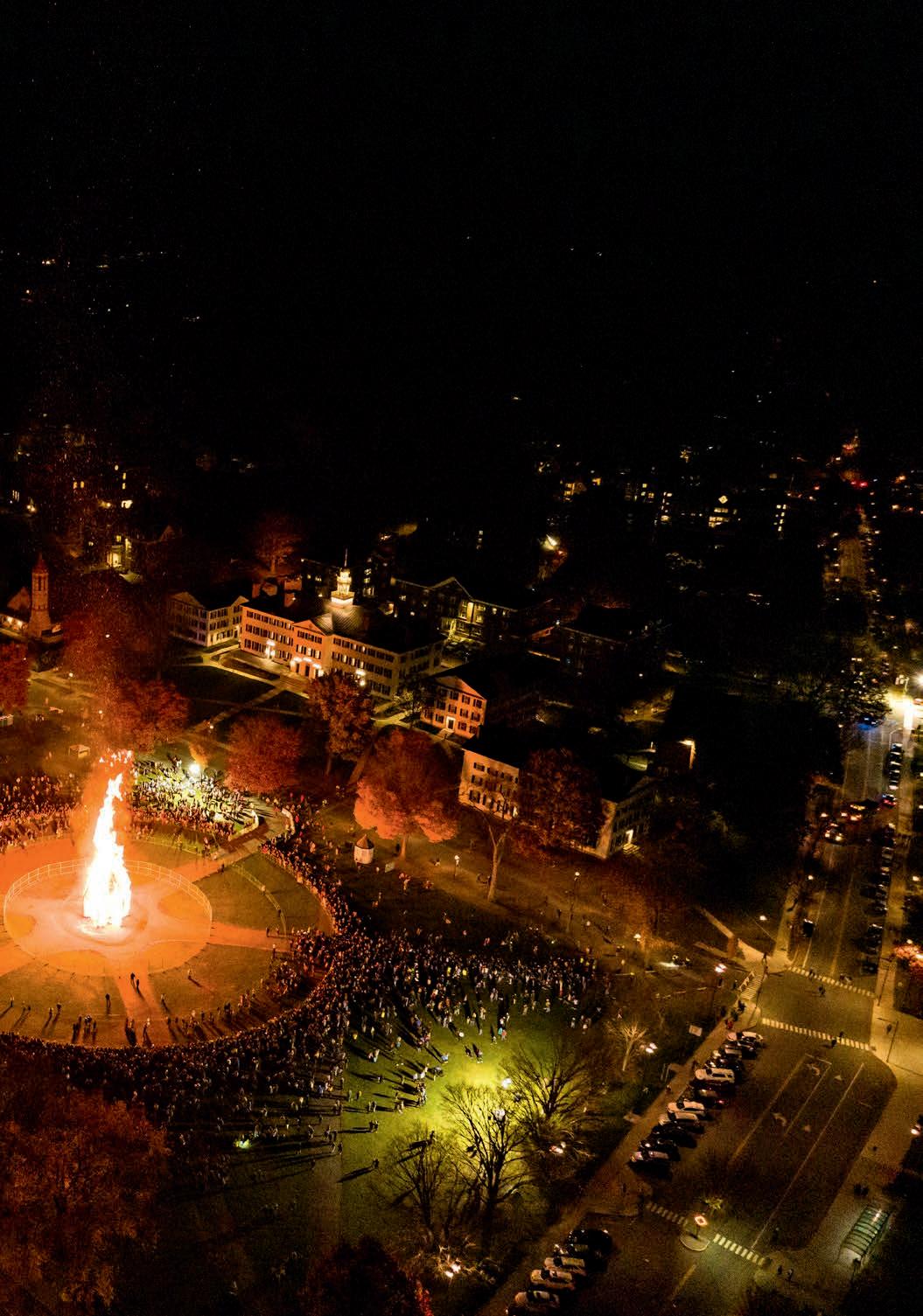
4,458 20 7:1 60% 80%
STUDENTS
FEWER IN THE MAJORITY OF CLASSES
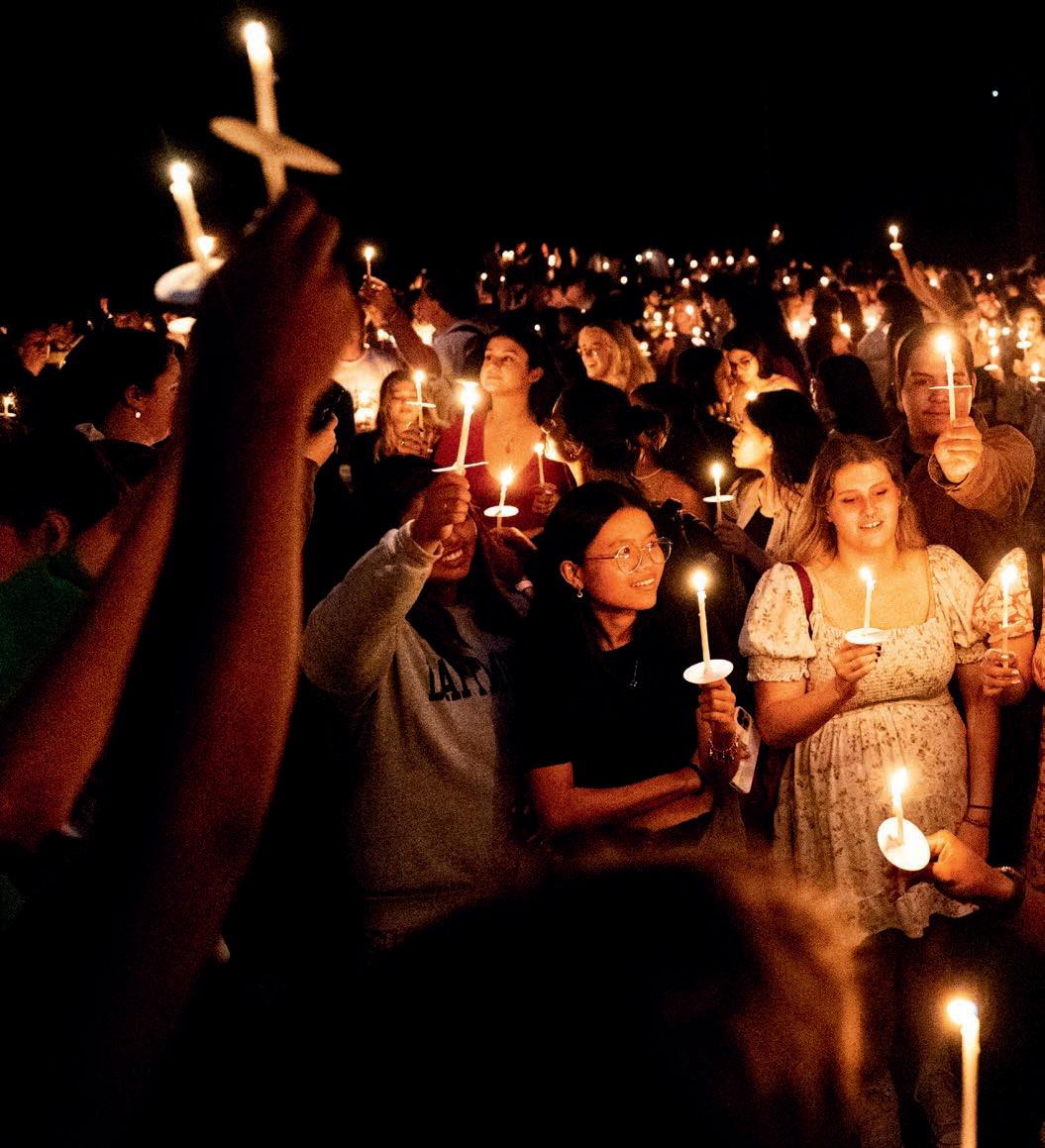
STUDY OFF-CAMPUS
95% 6 55+ % 95+ 70+ 6-YEAR GRADUATION RATE
RESIDENTIAL HOUSE COMMUNITIES
LANGUAGES SPOKEN AMONG THE STUDENT BODY
TRIBAL NATIONS AND INDIGENOUS COMMUNITIES REPRESENTED
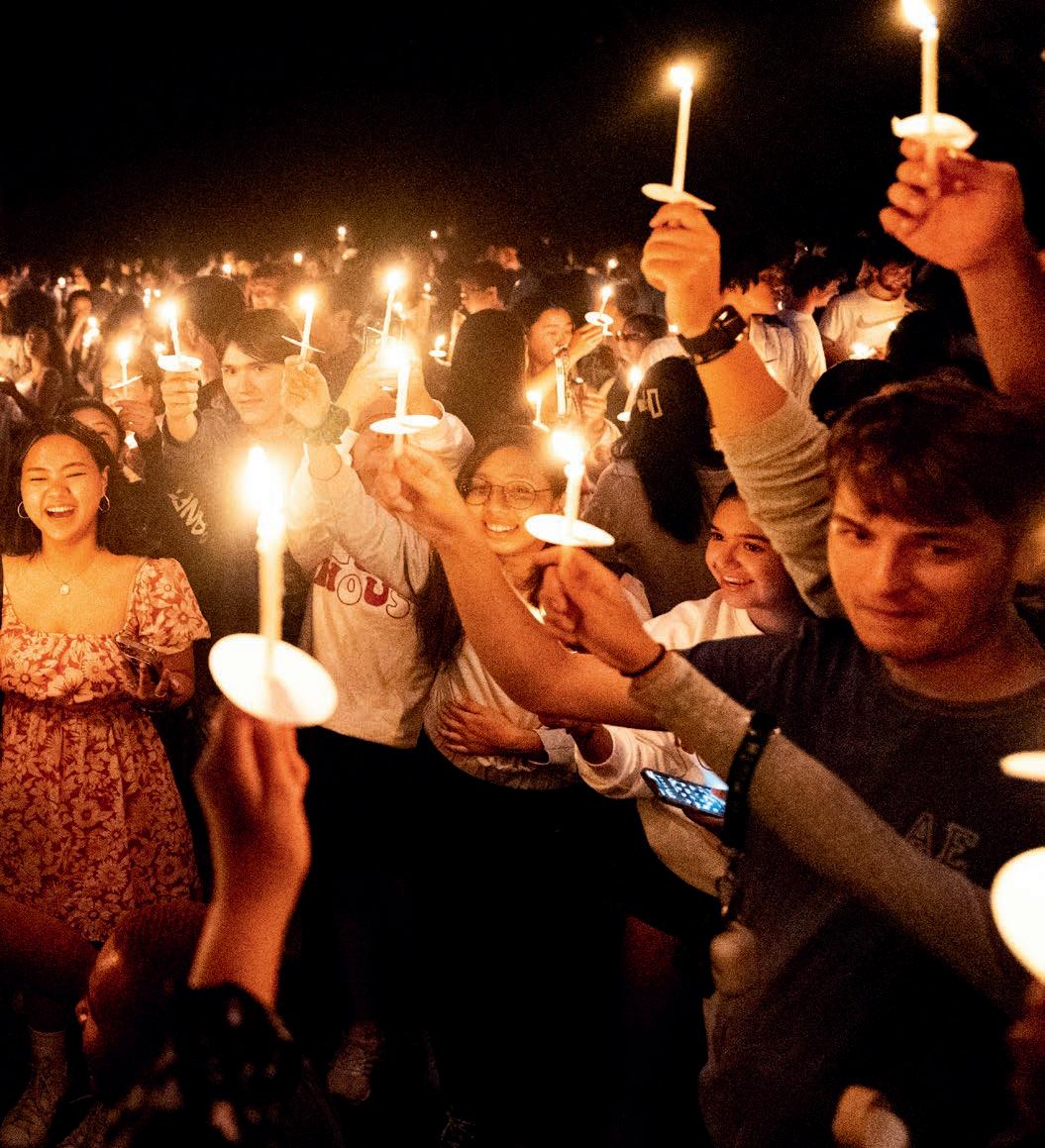
Dartmouth reviews applications without regard for your family’s ability or inability to pay for your education, regardless of citizenship status or income.
Dartmouth will meet 100% of a student’s demonstrated need for all four years. The average scholarship for a member of the Class of 2026 is $67,127 an amount that equals 80% of the cost of attendance.
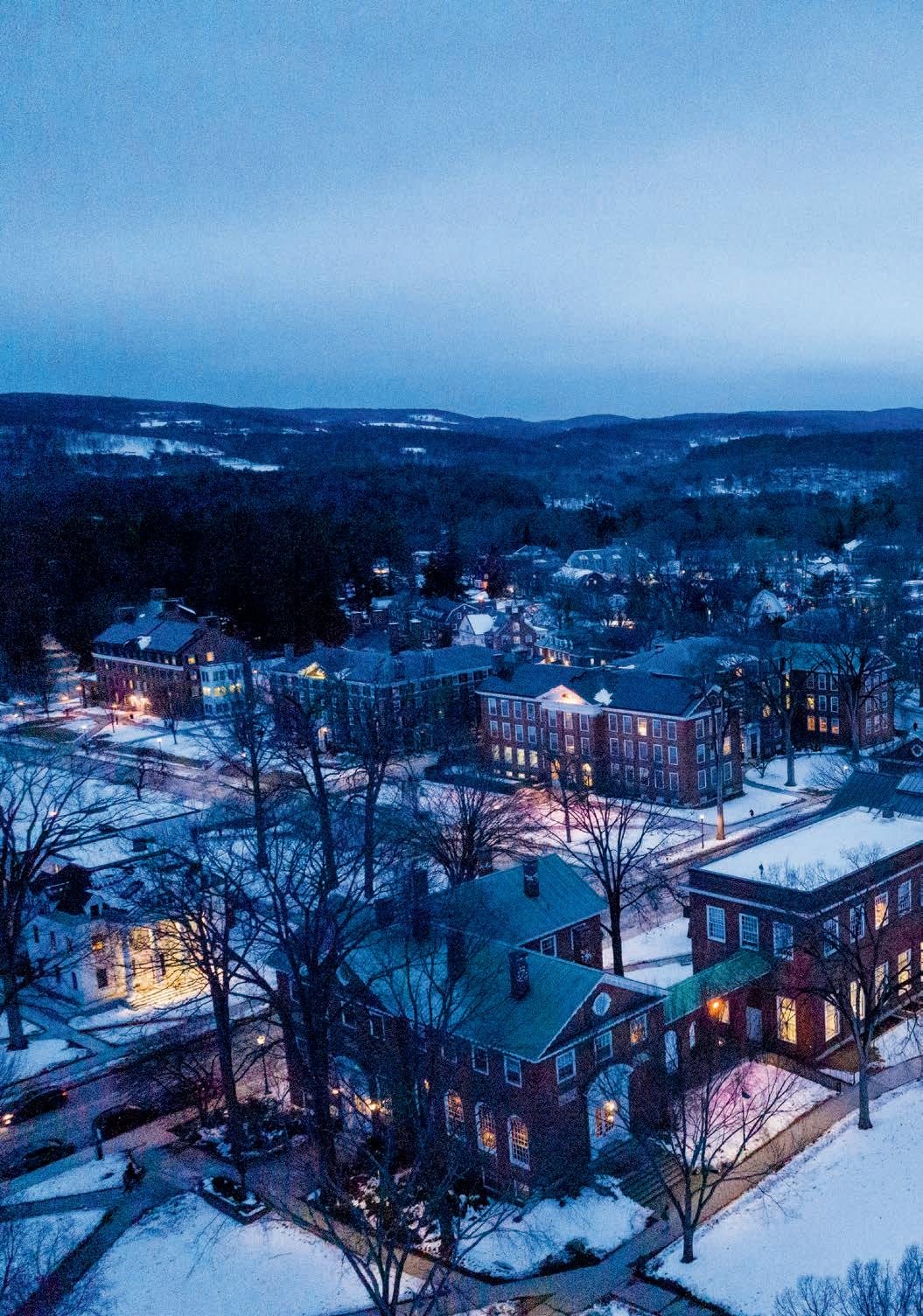
Dartmouth will not include required loans as part of the financial aid award created to meet a student’s demonstrated financial need.
Families that earn $65,000 or less and possess typical assets have a $0 expected parent contribution.
Students receiving need-based financial aid pay the same net price for a term on a Dartmouth off-campus study program as they would for a term in Hanover.

Dartmouth will provide scholarship assistance for financial aid recipients toward the cost of Dartmouth’s healthcare plan.
6016 McNutt Hall
Hanover, NH 03755
Our social media channels capture daily life at Dartmouth year-round.
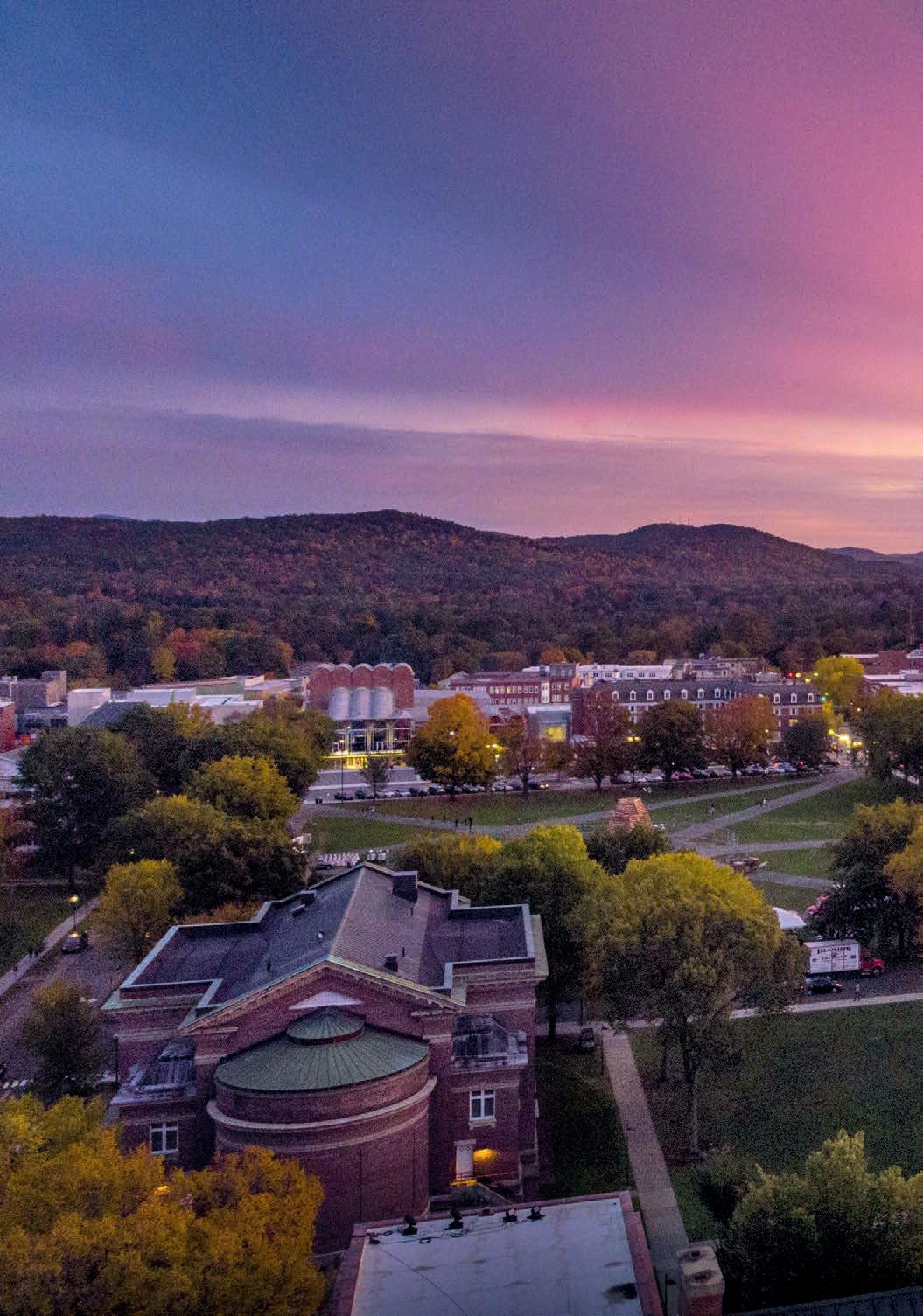
Student Blog: dartgo.org/blog
Instagram: @dartmouthadmissions
Facebook: @dartmouthadmissions
YouTube: dartgo.org/admissionsYT
Podcast: dartgo.org/admissionsbeat